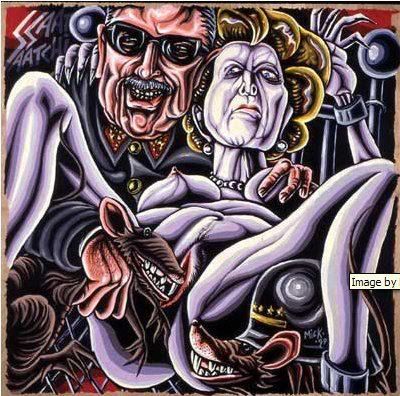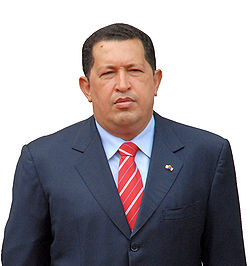France: From Gloire to Desespoir
L’Affaire Cahuzac
Paris.
President Francois Hollande’s government is reeling from the latest scandal to jolt this country-the admission by Budget Minister, Jerome Cahuzac, after months of denying the charge, that he had secret offshore accounts. This newest affaire only adds to the strange brew of outrage and despair that has enveloped the citizens of what was once Europe’s greatest power.
Nothing brings home more starkly France’s awful decline than a visit to the Basilica of Saint Denis in the northern suburbs of Paris. It is still considered one of the architectural marvels of Europe. Its vaulted domes, 13th century nave, slender towering walls and luminous stained glass windows were models for the high Gothic style that that inspired the architects of Notre Dame in Paris and other great abbeys and temples to the Christian God throughout Europe. Inside are the tombs—though not always the remains–of most of the kings and queens of France over the past 1500 years. It’s a memorable sight. But there were precious few tourists there when I visited yesterday; and non apparent on the streets outside.
Once you exit the cavernous, hushed Basilica you’re suddenly walking the main shopping streets of one of Paris’s most notorious urban slums, filled mainly with immigrants and the descendants of immigrants from the sprawling lands that France once ruled in Africa, not that many years ago.
Today, however, Saint Denis is more notorious for its crime and drug rate than its basilica. Probably 25% or more of the young people on these streets are unemployed. Saint Denis is also associated with gang violence, car burnings, housing complexes that even the police fear to enter, and a predominately Islamic population that feels increasingly estranged from the rest of France.
And Saint Denis is far from being an exception in France.
Despite President Hollande’s vow when he entered office to reduce unemployment, the number of jobless is still high—more than 10% and growing higher–throughout the country.
As is the crime rate, from petty street and auto thefts to apartment break-ins, assaults, and all-out gang warfare on the streets of Marseilles. The Interior Minister talks darkly of new violent mafia-like organizations in France, run by legal and illegal immigrants who have swarmed into the country from Eastern Europe in the past few years.
Despite President Hollande’s promise to revitalize French industry and block factory closures, factories continue to shut down. Others continue to lay off thousands of workers. The 35-hour workweek still reigns supreme.
Meanwhile, Hollande’s politically-driven drive to raise taxes on the wealthy, particularly a charge of 75% on those making more than one million Euros a year, has probably cost France far more than any such tax could ever bring in. The latest demented development is that the companies that pay those salaries will also have to pay the taxes. That includes France’s major football teams and millionaire stars.
Hundreds of thousands of French—many of the best and the brightest–have fled abroad over the past few years, more than 400,000 to London alone. But a survey taken found most of them left not to so much to avoid French taxes, but to escape stifling French bureaucracy and regulations, and do something about the huge waste.
Every French government in recent history has promised to do something about that bureaucracy. None have succeeded in tackling the entrenched labor unions and special interests.
In fact, most French long ago gave up their claim to be a major power. They would happily settle for a good, secure government job, with decent schools, housing, a comfortable retirement and continued access to one of the world’s best medical systems. They would settle in short for security, in their own land..
But that’s exactly what’s being threatened in an atmosphere of moral decay and crisis—of underlying rot.
Francois Hollande was elected eleven months ago to deal with all this-to bring an end to the frenetic bling-bling reign of Nicolas Sarkozy, to restore order, to return to a feeling of probity; to be, as he promised, “a normal president.”
And now comes the affaire Cahuzac
Jerome Cahuzac, Francois Hollande’s Minister of the Budget, who had vowed to clean up France’s huge deficit, its finances, and go after tax dodgers. This past December a new investigative on-line journal Mediapart, reported that Cahuzac had an illegal bank account in Switzerland. Cahuzac solemnly swore to his colleagues in the National Assembly, swore to all who would listen, that the charge was false.
This week, however, he finally admitted that, yes, he had secret account in Switzerland, which he then moved to Singapore. The account totaled about 600,000 Euros.
The French media immediately compared Cahuzac with Bill Clinton and the Lewinsky affair, Richard Nixon and Watergate.
Cahuzac’s humiliating admission is like blood in the water to the France’s political and media sharks. Before this scandal broke, the level of public approval for Hollande had plummeted to less than 30%. Today, it could only be lower. Now all sides are demanding to know how, if a small muck-raking journal could discover Cahuzac’s misdeeds, how is it that President Hollande—with all the investigative tools at his disposal–couldn’t have found out earlier.
Then today came further embarrassing news for Hollande. The revelation that the treasury of his last election campaign—the one that was waged to bring honesty etc. into government—the treasurer also had a couple of off-shore companies in the Cayman Islands.
There are increasing calls—even from within his own party–for him to completely reform his government, to strike out in some heroic new direction, to revive France’s faith in its future.
There’s no indication that Francois Hollande has either the stomach or the backbone for such a challenge. Nor that the French would willingly make the sacrifices necessary to retool and rebuild their nation.
They’re reluctant to even seriously discuss what’s needed.
Perhaps that’s because the problems they confront—like unemployment, economic growth, crime, racial strife, the survival of the Euro —-perhaps because those problems are so complex, the French—like other nations—find it much easier to obsess about other simpler issues—issues someone can have a real opinion about. Like..well, should a Muslim woman working in a government office be able to wear a veil? Or, should France’s social security system pay for a homosexual couple to have a child using artificial insemination and a surrogate mother?
Yet all the while, France’s real problems keep growing.
This week for instance, the Canard Enchaine, reports that, according to a recent government study, the time-off taken for such things as “sickness” and “accidents at work” by the 57,000 people employed by the City of Paris, came to an average of 20 days—that is about one month—per employee. That’s in addition to the five weeks of holiday they get each year.
That represents a total of more than 1.15 million days of work—a cost of 160 million Euros per year.
Meanwhile, as part of a project to refurbish the Basilica of Saint Denis, its marvelous stained glass windows, which looked over the tombs of France’s greatest monarchs, were removed from the church, replaced by artificially colored panes, and sent off to be repaired by skilled French artisans. Ten years later, those windows, according to a guide I spoke with, are still locked away in their protective cases.
The authorities can’t find the money to restore them.
BARRY LANDO is a former producer for 60 Minutes who now lives in Paris. He can be reached at: barrylando@gmail.com or through his website.








